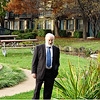Audio Version Of The Blog – 03.18.13
Listen to an Audio Version of the Blog
Download: MP3 Audio
[audio:http://files.kabbalahmedia.info/audio/eng_o_rav_2013-03-18_declamation_blog-rav_full.mp3 title=’18.3.13′]

Listen to an Audio Version of the Blog
Download: MP3 Audio
[audio:http://files.kabbalahmedia.info/audio/eng_o_rav_2013-03-18_declamation_blog-rav_full.mp3 title=’18.3.13′]
 Baal HaSulam, Shamati, Article 53, “The Matter of Limitation”: This is called the main part of the degree, which is a discernment of Katnut. This discernment must be permanent, and the Gadlut is only an addition. Also, one should yearn for the main part, not for the additions.
Baal HaSulam, Shamati, Article 53, “The Matter of Limitation”: This is called the main part of the degree, which is a discernment of Katnut. This discernment must be permanent, and the Gadlut is only an addition. Also, one should yearn for the main part, not for the additions.
The main thing is the state of Katnut (smallness), Hafetz Hesed, “to bestow in order to bestow,” being ready to settle for less. At the same time I don’t need to feel that I restrict myself or that I lack something, but rather the contrary, I should feel that I am totally satisfied.
A state of Katnut should become very dear and honorable for me. Then the question is why should there be a state of Katnut in the first place and not one point? I don’t want to have any volume at all. I want to take as little space as possible. In order to exist and to do good to everyone for the sake of the Creator, I am ready to shrink into a point and not have anything of my own.
The truth is that this is the right approach. It’s from such a state that we start to perceive and to attain spiritual reality, but the moment we begin to think about this and how we can bring contentment to the Creator, we understand that in order to do that we need to receive all the discernments and the desires from Him and to change them from in order to receive to in order to bestow. Thus we become a spiritual embryo that begins to grow in volume in order to yearn and to adhere to the Creator and thus bring Him contentment.
Without this we don’t grow like an embryo in his mother’s womb. Every second, every additional movement, every gram the embryo puts on is only in order to bring the Creator contentment. He has to feel that he is making the Creator happy.
During the time of birth, during the labor pains, and the stage in which the embryo turns with his head down before the birth, he examines every step he makes to see whether it’s in order to bring contentment to the one who gives him birth. After he is born, during the time of Yenika (suckling) he continues to develop like a baby who is in his mother’s arms; in the same way a person is in the arms of the Creator.
He already begins to work with his desires and partly limits himself, but every action he makes for the sake of limitation or for the sake of growing is only in order to bring the Creator contentment; this is how a person grows. Therefore, the point from which he begins to grow when he doesn’t want to have more than a point, remains his center. He stands on it, not wanting more than basic existence, and everything else he is forced to add to this point is only in order to bring the Creator contentment. This is the only thing that motivates him in all his actions: in every limitation and joy.
He is actually happy about this, not for his own sake, but for bringing the Creator contentment. By that he attains adhesion to the Creator like between two loving friends who feel one another.
[102831]
From the 1st part of the Daily Kabbalah Lesson 3/14/13, Shamati #53
Related Material:
Work In Joy
I Bestow Means That I Exist
How To Stay On The Shortest Straight Line
 Question: Why does it say, “And Moses led them to the bottom of the mountain and they gathered at the bottom of the mountain.”
Question: Why does it say, “And Moses led them to the bottom of the mountain and they gathered at the bottom of the mountain.”
(“Mountain” comes from the Hebrew word contemplations). Does this mean that Moses led them to the end of the thought, the understanding and the mind, which is the lowest state?
Answer: The role of the attribute of Moses in a person is to establish the understanding of what the attribute of bestowal means in him. Moses has to help the people of Israel know who the Creator is. In all our Reshimot (spiritual genes) that include all of Malchut of Ein Sof (Infinity), there is such an attribute called “Moses,” a level that connects between all the shattered parts. Its role is to help a person know the whole attribute of bestowal. When a person acquires such an attribute, he can already add his vessels to it and work to receive in order to bestow.
This means that “Moses led them to the end of the thought and the understanding.” He leads a person through all the desires, his vessels, called “the desert,” purifying the desires, these vessels in the desert from the intention of in order to receive called “Egypt” by bringing everyone to the intention of to bestow in order to bestow. Then they are ready to actually work in the three lines, which is called the conquering of the Land of Israel.
[102829]
From the 1st part of the Daily Kabbalah Lesson 3/14/13, Shamati #53
Related Material:
The Force Leading Us Out Of Egypt
Exile Is Separation From Brothers
Everything Starts From The Exodus From Egypt
 Opinion (Dani Rodrik, Professor of International Political Economy at Harvard University’s Kennedy School of Government and a leading scholar of globalization and economic development): “Nothing endangers globalization more than the yawning governance gap – the dangerous disparity between the national scope of political accountability and the global nature of markets for goods, capital, and many services – that has opened up in recent decades. When markets transcend national regulation, as with today’s globalization of finance, market failure, instability, and crisis is the result. But pushing rule-making onto supranational bureaucracies, such as the World Trade Organization or the European Commission, can result in a democratic deficit and a loss of legitimacy.
Opinion (Dani Rodrik, Professor of International Political Economy at Harvard University’s Kennedy School of Government and a leading scholar of globalization and economic development): “Nothing endangers globalization more than the yawning governance gap – the dangerous disparity between the national scope of political accountability and the global nature of markets for goods, capital, and many services – that has opened up in recent decades. When markets transcend national regulation, as with today’s globalization of finance, market failure, instability, and crisis is the result. But pushing rule-making onto supranational bureaucracies, such as the World Trade Organization or the European Commission, can result in a democratic deficit and a loss of legitimacy.
“How can this governance gap be closed? One option is to re-establish national democratic control over global markets. This is difficult and smacks of protectionism, but it is neither impossible nor necessarily inimical to healthy globalization. As I argue in my book The Globalization Paradox, expanding the scope for national governments to maintain regulatory diversity and rebuild frayed social bargains would enhance the functioning of the global economy. …
“But the trouble is not just that these global institutions remain weak. It is also that they are inter-governmental bodies – a collection of member states rather than agents of global citizens. Because their accountability to national electorates is indirect and uncertain, they do not generate the political allegiance – and hence legitimacy – that truly representative institutions require. Indeed, the travails of the European Union have revealed the limits of transnational political community-building, even among a comparatively limited and similar set of countries.
“Ultimately, the buck stops with national parliaments and executives. During the financial crisis, it was national governments that bailed out banks and firms, recapitalized the financial system, guaranteed debts, eased liquidity, primed the fiscal pump, and paid the unemployment and welfare checks – and took the blame for everything that went wrong. In the memorable words of outgoing Bank of England Governor Mervyn King, global banks are ‘international in life, but national in death.’
“But perhaps there is another path, one that accepts the authority of national governments, but aims to reorient national interests in a more global direction. Progress along such a path requires ‘national’ citizens to begin viewing themselves increasingly as ‘global citizens,’ with interests that extend beyond their state’s borders.”
My Comment: Since national governments depend on their citizens, integral education will lead to an understanding of global connection and responsibility, causing pressure on national governments.
[102967]
Related Material:
Economics Of The Future Society
Humanity’s Global Problems
Mutual Responsibility Course: A Post-Crisis Crash Course
 Chyngyz Aitmatov (a Russian and Kyrgyz writer whose works were translated into more than 150 languages): “In one popular science magazine I recently read a story that exotic flowers in Paris suddenly began to die. Those flowers were once exported from Latin America. Meanwhile, there was perfect weather.
Chyngyz Aitmatov (a Russian and Kyrgyz writer whose works were translated into more than 150 languages): “In one popular science magazine I recently read a story that exotic flowers in Paris suddenly began to die. Those flowers were once exported from Latin America. Meanwhile, there was perfect weather.
“Scientists did not find any reason that could explain what had happened. What did happen? There was extraordinary drought at the homeland of these flowers, and there, the same flowers died …
“What would be the history of humankind, our today’s life, if people, who think themselves ‘the crown of nature,’ could feel each other in the same way and respond to the suffering and joy of another person?!”
My Comment: This is an example of the universal interconnection of Nature. And the mutual sensation of other people’s feelings like one’s own is called love!
[102948]
Related Material:
Collaboration: A Property Inherent In Nature
Schooling Fish Operate On The Basis Of Mutual Guarantee
Change Of Human Nature In Our Time
 Question: Would you say that the quantity and quality of our exertion depends on our envy of the friends?
Question: Would you say that the quantity and quality of our exertion depends on our envy of the friends?
Answer: Yes, it also depends on your envy. It says, “Envy, lust and honor take a person out of this world.”
We may ask ourselves what is so good about these attributes, what can be worse and more reprehensible than losing your human form? A person who is envious can harm others and enjoys stepping on others and destroying them.
In short, we are talking about negative attributes, but they are actually the ones that take a person out of this world into the upper world. After all, they show me the real ego.
How else can I establish my connections with others if I don’t feel envy, lust, and a desire for respect? If I don’t have such attributes, I don’t need anything; I can live somewhere in the suburbs and sometimes go out shopping or doing different errands to provide my basic necessities and come back home.
But suddenly, in this peacefulness, I discover that I envy others; I want to attain the same things that they have and even more in order to seem higher than them. Then I move to live in the city and start a “career”…
It is impossible to advance without revealing my own bad attributes. We should only understand that they are “help against.” We shouldn’t block them but rather let them come out, as Baal HaSulam says, “I am happy with the revelation of the evil.”
Question: How can we combine feeling envious of the friends and requesting not for me but for them?
Answer: The envy of the friends is a great catalyst for my advancement, but advancement towards what? Towards bestowal. I don’t mean to reach greater achievements than them on the corporeal level; I want to succeed on the spiritual level. In spirituality, success depends on how much I annul my “self.” When I want to advance, I organize everything that I have received from the friends by envy, lust, and the desire for respect, and then I begin to understand that spiritual advancement is actually transcending myself.
Thus I receive a desire to ascend from the friends, but I don’t interpret it correctly: to ascend means to rise above myself, and to be incorporated with them. Thus the group is “help against”; it evokes a negative awakening in me, which I turn to positive in order to eventually return to the connection with the friends.
Here I have a problem again, the desire grows again, and I repeat the whole process…
Question: How can I aim the envy, the lust, and the desire for honor in the right direction? After all, it is very easy to justify myself in pursuing the right goal and finally fall into the darkness and distortion along the way. How can I build the internal boundaries that direct me, in addition to the teacher, the group, and the books?
Answer: You have to annul yourself before the friends. As a result of the annulment, you evoke the envy, the lust, and the desire for respect inside you; you open your eyes and begin to examine things and don’t just let them go on.
Otherwise, you find yourself in corporeal envy, lust, and desire for respect; you want to be different, to rise above the friends. But the group is built in such a way that it won’t let you fall into this. You will change in any case since the atmosphere here is special and people are dealing with inner search, and so your attitude towards the friends gradually takes on a more correct form. So even new friends here receive the right direction and aspire for the truth and not for the usual profit for themselves.
Question: But each of the friends was given the optimal conditions to advance, so what is there to envy?
Answer: I want to include them inside me. In each of them there is something special since otherwise he wouldn’t be here. So I want the same thing, this means that I want to be Adam, a human being.
The optimal conditions are not reason to relax, but rather a reason to bring the good out of everything, from all the states and the friends.
[102762]
From the 4th part of the Daily Kabbalah Lesson 3/10/13, “Introduction to The Book of Zohar”
Related Material:
Envy Is Useful When It Increases Wisdom
Envy Is Not A Flaw
Envying The Friends
 Question: What does it mean to exit my body and treat the world outside me, rocks and flowers, with love?
Question: What does it mean to exit my body and treat the world outside me, rocks and flowers, with love?
Answer: It is about a state in which a person has already entered the spiritual world, not simply loving nature, plants, animals, and people who are close or distant to one’s self. In order to really be able to exit your ego, you were given friends, a group, and you have to use this means. If you establish the right attitude towards the group, then you will see how it can help you and take you out of yourself.
Only then will you understand who you were, what was on the outside, and why the Creator has created this world that we see as external to us. You will understand why you have a special body in this world that is meant to help you perform this exit.
Only after you begin to come out by all the external help of the good environment, will you feel that your attitude towards the still, vegetative, and animate nature is also changing. You will treat all of humanity differently since you will see everyone in the Light of bestowal and will start judging everything differently.
The ultimate goal is to reach equivalence of from with the Creator, after which you will certainly justify Him in every way; you do all that not in order to better your personal state, but because you want to bring Him contentment so that He will enjoy you.
[102819]
From the 1st part of the Daily Kabbalah Lesson 3/13/13, Shamati #36
Related Material:
In The Prison Of One’s Own Egoism
A Cry From The Bottom Of The Well
The Group Is The Noah’s Ark Of Salvation
 A person cannot exit his ego by himself. Only the group can help him by throwing a lifeline to whoever wants to join it. The group is external to a person, so when he wants to exit himself, he cries out to them, “Save me, I have fallen into a deep well! Throw me a rope so that I can tie it around me and then pull me out of here!”
A person cannot exit his ego by himself. Only the group can help him by throwing a lifeline to whoever wants to join it. The group is external to a person, so when he wants to exit himself, he cries out to them, “Save me, I have fallen into a deep well! Throw me a rope so that I can tie it around me and then pull me out of here!”
Only the group can offer such help to a person who needs help, by wanting to be with everyone. The rope is an invitation to connect with the friends, with their love. If a person tries to hold on to this invitation and tries to be in equivalence of form with them, then the friends will begin to pull him up. He has to overcome his ego more and more, on his part, which means that he rises from the well towards the friends.
Each time more problems and new interruptions that hold him back will build up on that rope, but he will overcome them and hold on more tightly to the rope, climbing it until he comes out of the well.
[102816]
From the 1st part of the Daily Kabbalah Lesson 3/13/13, Shamati #36
Related Material:
In The Prison Of One’s Own Egoism
Do You Like Flowers?
The Group Is The Noah’s Ark Of Salvation
| [media 1] | [media 2] |
Writings of Baal HaSulam “Matan Torah (The Giving of the Torah),” Lesson 3
| [media 3] | [media 4] |
The Book of Zohar – Selected Excerpt, Parashat “Va’etchanan (A Plea),” Item 26, Lesson 2
| [media 5] | [media 6] |
Talmud Eser Sefirot, Vol 3, Part 10, Item 44, Lesson 21
| [media 7] | [media 8] |
“Introduction to The Book of Zohar“
| [media 9] | [media 10] |